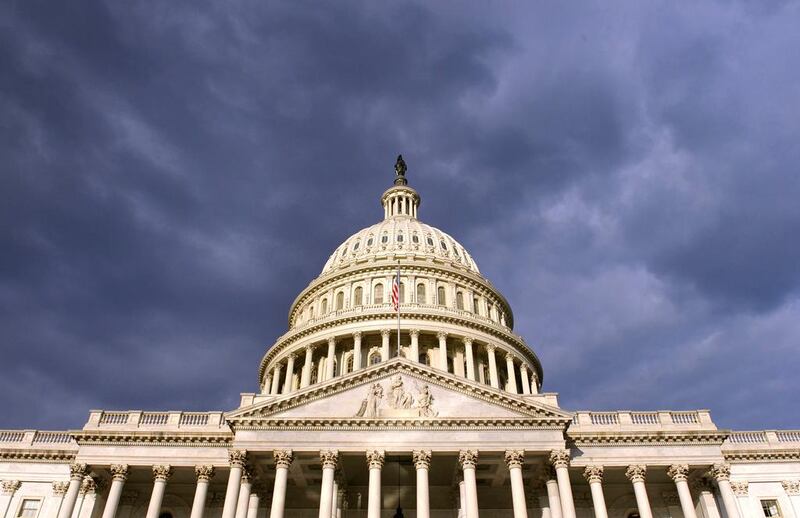“All things come to him who waits – provided he knows what he is waiting for,”so said the former United States president Woodrow Wilson.
Wilson’s words could have been used to sum up the economic headlines of 2013.
From the wrangling over budget talks in Washington to the rumbling on of the euro-zone debt crisis, investors have spent the year as anxious bystanders to events playing out on the global arena.
Locally, investors spent 2013 in increasingly frenzied anticipation of a decision about Dubai’s hosting of the World Expo 2020. The awarding of the event to the emirate last month is expected to start giving a positive uplift to the economy in the coming years through more building work and jobs.
But perhaps the biggest uncertainty during the year was the wait for clues about when the Federal Reserve and other major central banks would begin to slow bond-buying schemes. Investors were rewarded for their patience this month when the Fed said it would begin whittling down its US$85 billion-a-month quantitative easing scheme, starting next month.
For the past five years, the Fed has been buying billions of dollars of government bonds in an effort to stimulate a recovery from the global financial crisis. But officials cited strong employment growth as a factor behind its tapering announcement, forecasting the jobless rate would drop to 6.3 per cent next yer from 7 per cent now.
But next year may not mean an immediate end to the low interest rates that have become a feature of developed economies since the crisis.
In its tapering announcement, the Fed said it would be appropriate to keep rates at near zero “well past” the time when the jobless rate dropped below 6.5 per cent.
“This environment, coupled with low interest rates, means that we should not expect to see a spike in long-term interest rates,” said Philippe Waechter, the chief economist at Natixis Asset Management.
Regulators in Japan, Europe, the United Kingdom and Switzerland also kept their rates at record lows in 2013 in a bid to avoid undermining their fragile economies. As a result, money flowed into emerging markets in search of higher returns.
“A number of emerging economies – such as Brazil, India and Indonesia – have already had to raise their central bank rates in 2013 to keep inflation in check and counter the weakness of their exchange rates,” according to a report by Julius Baer, the Swiss private banking group.
“Further increases in key interest rates in these countries cannot be ruled out in 2014.”
Another big shadow over the global economy this year also stemmed from the world’s largest economy. Budget wrangling in the US caused federal agencies to partially close from October 1 to 16 after a political battle over healthcare reforms stalled a passage of a measure to fund the government.
The risk of further shutdowns looks to have been averted after President Obama signed a bipartisan budget deal into law on December 26th. This sets spending levels until 2015, and should spell a two-year pause in the political brinkmanship that has repeatedly threatened the US economy in recent years.
Across the Atlantic in the euro zone, the single currency area’s economy is tipped to finish 2013 in negative territory for the third year in a row.
Record unemployment of more than 12 per cent, coupled with weak domestic demand acted as a deadweight to growth, even as Spain, Greece, Portugal and especially Ireland made progress on fixing their economies.
The year did mark some more clear-cut positives for both the local and global outlook. Iran last month reached an interim nuclear agreement with six world powers, a deal that is anticipated to lead to an easing of crippling sanctions. Roubini Global Economics has forecast the sanctions easing could be worth up to $15bn for Iran.
For the UAE, the talks bring hopes of a revival in the flow of goods with neighbouring Iran, once its biggest trading partner. The US secretary of state John Kerry said last month $19bn in business had been shaved off the UAE’s business with Iran as a result of the sanctions.
The global economy is also expected to receive a fillip from an agreement on trade rules struck by the World Trade Organization this month.
The draft deal, signed in Bali, is estimated to add $1 trillion to world output. It marks a breakthrough in trade talks that have dragged on for 12 years.
In this case, more than any other this year, the wait appears to have paid off in the end.
tarnold@thenational.ae





